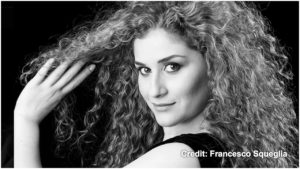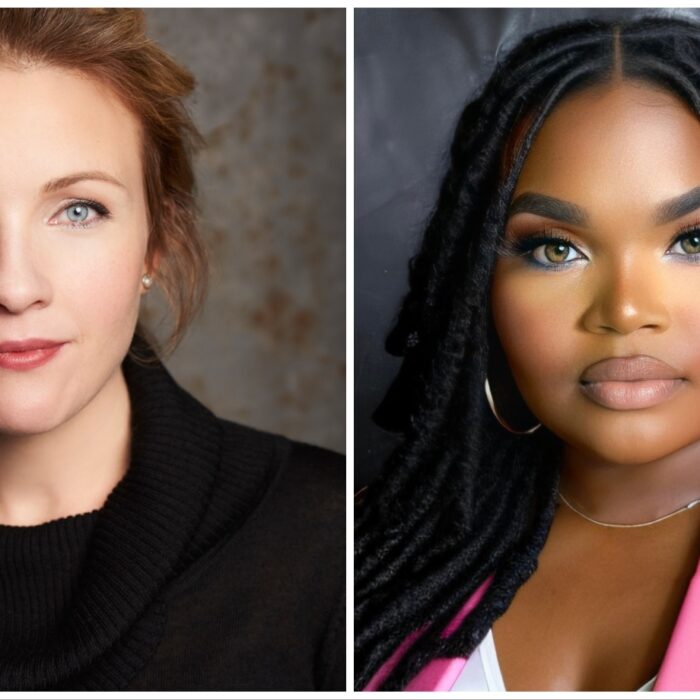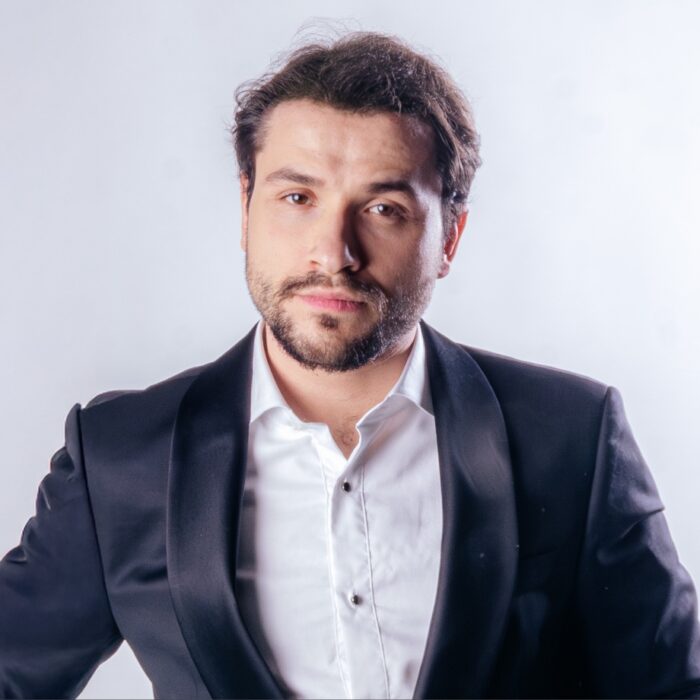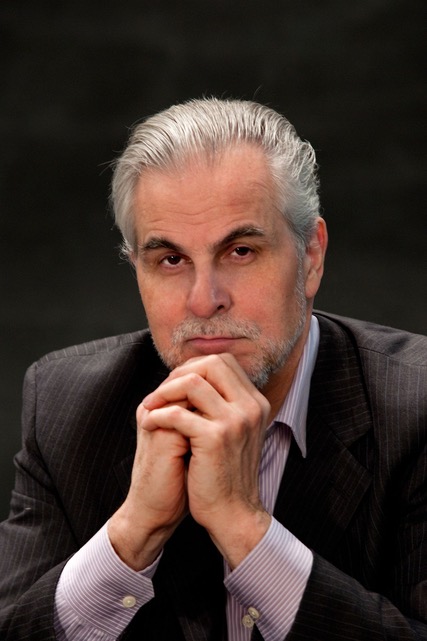
Q & A: Mezzo-Soprano Serena Malfi On Her Spicy Zerlina
By Chris RuelNew York operagoers are growing increasingly familiar with Napoli-native mezzo-soprano Serena Malfi’s Mozartean repertoire.
After her 2014 Met debut as Cherubino in “Le Nozze di Figaro,” Malfi returned to the big stage in 2016 as Zerlina in “Don Giovanni,” and as of this writing, she’s back as the country girl taken in by the Don’s deceitful charms.
Last year, those who took in Phelim McDermott’s Coney Island-themed “Così Fan Tutte” encountered the mezzo in the role of Dorabella. Though not performing in “La Clemenza di Tito” at the Met season—a production which happens to be running simultaneously with “Don Giovanni”—she has sung Annio on numerous occasions at different houses. It’s clear, Malfi knows her Mozart with almost 20 runs of the composer’s operas in seven years.
However, alongside the mezzo’s penchant for Mozart runs a rippling stream of bel canto and Baroque. Malfi has performed Cenerentola in Rossini’s “La Cenerentola,” Rosina in “Il Barbiere di Siviglia,” and Romeo in Bellini’s “I Capuleti e i Montecchi.” Throw in runs of Handel’s “Agrippina,” Pergolesi’s “La Salustria,” Purcell’s “Dido and Aeneas,” and Vivaldi’s “Dorilla in Tempe,” and you have a mezzo well-versed in three successive eras of opera.
In a recent interview with OperaWire, Malfi talked about her early experiences with music, the start of her singing career, and her spicy spin on Zerlina.
OperaWire: Do you come from a musical family?
Serena Malfi: Absolutely not. No. Not one of my parents is a musician nor are any of my relatives. I’m the first one. I remember when I was a little girl, I listened to blues and jazz with my dad because he loved that music.
I played piano, but I started too late when I was nine. I didn’t like it very much. I always got nervous because I wanted to do things that I couldn’t do, so I was like, oh! I hate you, piano! That’s when I started with voice lessons.
OW: And, at what age was that?
SM: I started when I was a teenager, but just for pop music and jazz. It was absolutely not for opera; I didn’t think I was able to sing opera at all. But my teacher, when I was 18 or 19, asked me to take an exam at the conservatory. So, I did this exam in singing, and the teachers at the conservatory asked me if I wanted to start studying opera and learn how to sing properly. I said, okay let’s try.
And from that moment on, the love for opera just exploded. I started studying more, and then I went to Rome to study at the Conservatorio of Rome. I had master classes with Renata Scotto and Raúl Giménez, and everything started there.
OW: What was the first opera you attended?
SM: I think my first opera was “I Lombardi alla prima crociata.” It wasn’t very funny. I was young, and I went there because my cousin was a super; I just went to see her. I was really little, so I don’t remember it well, but I do remember being in the Teatro di San Carlo because of the beauty of the place. It’s amazing.
OW: When did you know you wanted to make opera a career?
SM: I don’t know if I ever did. You know, you’re studying, and then somebody discovers you. And then this person says, okay, now study this and then you do an audition, and then everything starts. You go from zero to 100 like nothing. I didn’t realize I was starting, really! I did my first opera, and then the second one, and then came the third, and then the fourth, and then it was like, whoa! What’s going on here?
OW: What were some of the first operas you sang professionally?
SM: “La Grotta di Trofonio;” it’s sort of a “Così fan tutte,”—very funny—at the Opernhaus Zürich and then “Barbiere,” also in Zürich. These were my first two experiences singing professional opera.
OW: Do you have a favorite role?
SM: Oh, I don’t know; there are so many roles. “Cenerentola” is one of them because it was one of the first operas that I studied; I have an affection for it. But, I also like roles that are less important, like Dorabella in “Così Fan Tutte,” because I love teamwork. When you have a good cast, you have a lot of fun.
OW: You sing a lot of Mozart.
SM: I do sing a lot of Mozart; I love signing Mozart!
OW: Why?
SM: It’s just the genius. You know when I hear the music I never get tired. I can hear Mozart all the time and never get tired of him. Everybody would love to meet Mozart because he was such a particular and singular person.
OW: What are some of the challenges that come along with singing Zerlina?
SM: Zerlina can be hard for a mezzo because of the tessitura and because you hear it always with a soprano. But I find it very interesting with the voice of a mezzo because you already have Donna Anna, and Donna Elvira, who are sopranos; so, you put another color in it. I remember when I did [Zerlina] the first time here [at the Met], it was in 2016. I was really, really scared. It’s already challenging to sing here. Singing at the Metropolitan Opera is not normal, it’s a huge thing! It’s the biggest theater and stage in the world—it’s amazing.
OW: What’s your approach to the character?
SM: I’m not a super nice and sweet Zerlina, I’m more spicy; I’m like a female Don Giovanni. She falls immediately for another man and then she just plays with Masetto. She can do whatever she wants with men.
OW: Do you always play Zerlina as a spicy?
SM: It depends on the director and what he wants from you. I remember the at Champs-Élysées, (the director) said, “I want a spicy Zerlina, you’re Don Giovanni to me.” In another I did in Paris, she was a little bit more scared.
Here [at the Met], it is a period [production], so you can’t do everything you want because you have to stay in the period. You can’t be too modern, but you can always play a strong woman. Why not?
OW: What’s the chemistry like within the cast? Have you sung “Don Giovanni” before with some of the same cast members?
SM: Yes, with Adam (Plachetka). From 2016 until now, we sing together every year. We are friends, and we met the first time in 2012 in Vienna. We’ve sung a lot together—always Mozart. With the others, I met them here, except for the tenor, Pavol Breslik. I’ve sung with him but just at a concert. Peter Mattei is amazing as Don Giovanni.
OW: Let’s talk about life as a professional singer. How do you cope with the travel and demands of the profession?
SM: Well, when I can, I usually go to the gym because it puts away my anxiety. It’s very good for my mind. Or I walk, watch Netflix and just sleep when I can. Normal stuff.
OW: What advice do you have for singers who are just starting in the business?
SM: Have courage and to always be prepared 100 percent. You never know what they can ask you. Maybe they’ll ask you to change something, and you have to be fast and prepared. So, never be unprepared. Don’t be surprised. And have courage because it’s not easy and it’s not an easy world.
OW: What do you do to build your courage?
SM: I was, and I still am very shy. At least now, I can talk with people. You know, in school, I was the one who was always in the books studying. I didn’t have a great social life. I think that theater and singing helped me a lot; it’s connections, connections with people and other things.
OW: What’s a dream role for you?
SM: Ha! Carmen! It’s one of many. I play Dorabella spicy, and Rosina spicy…
OW: Well, then Carmen just makes sense!
SM: Yes! I hope [to play her] soon.


